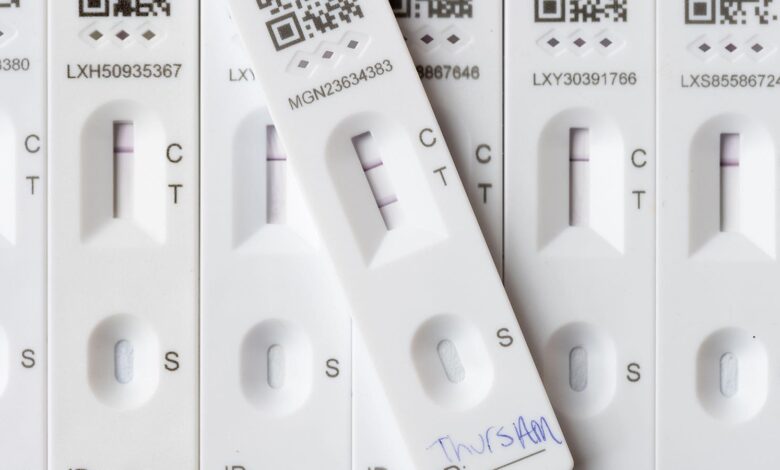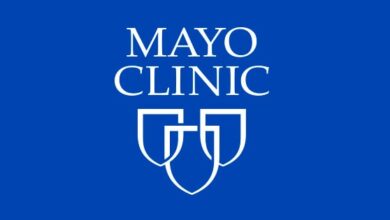COVID Infection Not Linked to New Asthma Diagnoses in Kids

— Less exposure to respiratory viruses, other asthma risk factors during pandemic may have helped
by
Elizabeth Short, Staff Writer, MedPage Today
April 12, 2024
A positive polymerase chain reaction (PCR) result for SARS-CoV-2 was not associated with a new asthma diagnosis in children, according to a retrospective cohort study.
In adjusted analyses, PCR positivity for SARS-CoV-2 had no significant effect on the hazard of a new asthma diagnosis over 18 months of follow-up (HR 0.96, 95% CI 0.73-1.27, P=0.79), reported David Hill, MD, PhD, of the Children’s Hospital of Philadelphia, and co-authors in Pediatrics.
Previous longitudinal studies have shown associations between acute wheezing illnesses among infants secondary to rhinovirus or respiratory syncytial virus (RSV) and later progression to asthma in childhood and adolescence, the authors explained.
“Smaller studies have isolated coronavirus strains from nasopharyngeal aspirates of infants and children during acute wheezing episodes or asthma exacerbations,” they added. “However, each of these studies identified aspirates containing human coronaviruses 229E and OC43, coronavirus strains with low pathogenicity and mostly responsible for benign upper respiratory tract infections.”
The current study examined a cohort of over 27,000 kids ages 1 to 16 years who were tested for COVID-19 during the first year of the pandemic. In the primary analysis, 1.81% of SARS-CoV-2-positive patients were subsequently diagnosed with asthma compared with 2.13% of SARS-CoV-2-negative patients.
“This study further benefits from a relatively unique period in history in which there was more uniformity in and control over environmental risk factors for asthma development,” Hill and team noted. “Principally, the prevalence of other respiratory viral illnesses (including RSV, influenza, and rhinovirus) plummeted during the first year of the pandemic.”
“This fact provided a natural opportunity to isolate the effects of SARS-CoV-2 from other respiratory viral infections,” they continued. “Additionally, global improvement in pollution trends and air quality, coupled with greater isolation indoors, may have helped minimize exposure to outdoor toxicants and allergens while also minimizing variability between urban and rural settings.”
Michelle Mann, MD, of Texas Children’s Hospital and Baylor College of Medicine in Houston, told MedPage Today in an email that cough, wheezing, and bronchial reactivity can be seen in children with acute COVID-19 infection with or without an asthma diagnosis.
“The data are reassuring when discussing the prognosis with patients and families with COVID-19 infection and respiratory symptoms,” she said. “We have seen in practice that most children with prolonged respiratory symptoms after COVID-19 infection will improve with time. However, the time course for resolution of respiratory symptoms can be much longer than other respiratory viruses.”
Theresa W. Guilbert, MD, of Cincinnati Children’s Hospital Medical Center, highlighted the environmental factors present during the pandemic.
“It is possible that our appropriate public health response to the pandemic — social distancing, temporary suspension of school and work — may have led to less exposure to respiratory viruses and other risk factors associated with asthma,” she told MedPage Today. “For example, 1) less exposure to respiratory viruses, which may or may not be protective against asthma, 2) less exposure to pollution, which may be protective against asthma, or 3) increased maternal stress, which may lead to increased risk of asthma.”
In the study, factors that significantly increased the hazard of new asthma diagnosis were Black race (HR 1.49, 95% CI 1.13-1.95, P=0.004), food allergies (HR 1.26, 95% CI 1.03-1.55, P=0.025), and allergic rhinitis (HR 2.30, 95% CI 1.93-2.74, P<0.001).
For children younger than 5 years, preterm birth (HR 1.48, 95% CI 1.13-1.93, P=0.005) and body mass index (HR 1.13, 95% CI 1.07-1.19, P<0.001) also significantly increased the hazard of new asthma diagnosis.
On the other hand, older age (ages 5-11: HR 0.27, 95% CI 0.22-0.34; ages 12 and up: HR 0.16, 95% CI 0.12-0.22) was associated with a significantly lower hazard of new asthma diagnosis.
For this study, Hill and team enrolled 27,423 children within the Children’s Hospital of Philadelphia Care Network who received PCR testing for SARS-CoV-2 from March 2020 through February 2021. More than half were boys (52%), 39% were ages 5-11, 37.3% were ages 1-4, and 23.7% were 12 and older. Most kids were white (60.7%), and 21.3% were Black.
About 11% were born preterm, 12.7% had atopic dermatitis, 15.7% had a food allergy, and 43.6% had allergic rhinitis.
During the follow-up period, 573 children received an asthma diagnosis. The primary analysis defined asthma diagnosis as the presence of at least one corresponding ICD code for asthma, along with a prescription of an asthma-related medication.
Rates were similar in the sensitivity analysis, which used the secondary asthma diagnosis definition that required a corresponding ICD code for asthma at two or more follow-up visits at least 6 months apart, as well as a prescription of an asthma-related medication, with 1.12% of positive patients and 1.59% of negative patients diagnosed with asthma.
Hill and colleagues pointed to several study limitations, including the fact that it took place at a single institution and it relied on PCR test results for a 1-year exposure window only. In addition, “the exposure window preceded the evolution of several SARS-CoV-2 variants,” and “it is possible that these later SARS-CoV-2 strains may influence asthma risk differently,” they wrote.
-
![author['full_name']](https://clf1.medpagetoday.com/media/images/author/EShort_188.jpg)
Elizabeth Short is a staff writer for MedPage Today. She often covers pulmonology and allergy & immunology. Follow
Disclosures
This study was supported by the National Institutes of Health and the Children’s Hospital of Philadelphia Research Institute.
The study authors reported no conflicts of interest.
Mann and Guilbert reported no disclosures.
Primary Source
Pediatrics
Source Reference: Senter JP, et al “COVID-19 and asthma onset in children” Pediatrics 2024; DOI: 10.1542/peds.2023-064615.

